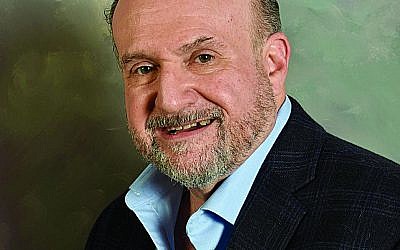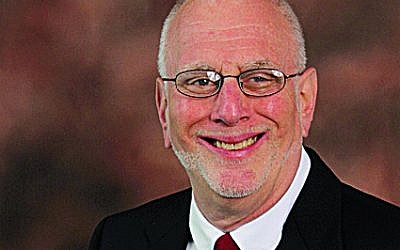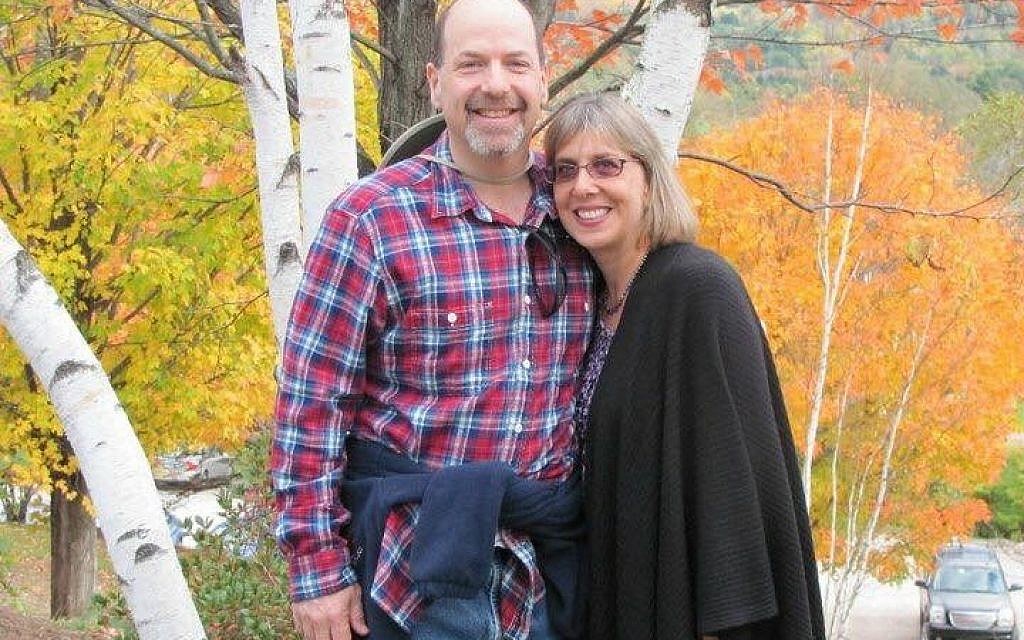The Double Pain of Depression and Suicide
Community members share personal stories while therapists weigh in on Judaism, depression, and anxiety.
I admit that I was indeed rocked by the recent suicides of Kate Spade and Anthony Bourdain. They had “everything.” Why did family/friends not know? The news was abuzz with statistics that more Americans die of suicide than car accidents and homicides. Local psychiatrist Steven Jaffe (no relation) says, “The incidence of suicide is indeed up. Those who are depressed and vulnerable can be influenced as copy cats, especially with the media glamorizing the phenomena instead of focusing on the wasteful outcome. Internet bullying is another factor.”

Jews are believed to have established the field of psychiatry as a way to deal with problems. Freud, Bettelheim, Adler, Fromm and Maslow were Jewish forefathers who had a penchant for expressing and analyzing emotions. Jews make up 29 percent of the American psychiatrists, and 13 percent of medical doctors overall, according to a 2007 study by the University of Chicago Medical Center, “Psychiatrists are the Least Religious of all Physicians.”
The early Jewish texts show King David struggling with depression and Deuteronomy referring to shigaon, the root word for meshuganah, Yiddish for crazy. And dare to imagine what happened at Masada.
Get The AJT Newsletter by email and never miss our top stories Free Sign Up
Maybe Jews bring a neurotic, anxiety-prone persona upon ourselves. Woody Allen often appears as a stereotypical high anxiety mess. Studies by the National Institute of Mental Health in 1992 showed that Jews with manic depression were within the normal range of the population at large. In a study done in 2012 (Elizabeth Midlarsky, Columbia University) Jews, more so than Catholics and Protestants, were shown to be tolerant of not stigmatizing therapy and seeking professional help. In “Why Jews Make Good Therapy Patients,” an article in the Pacific Standard the same year, writer Tom Jacobs stated, “Jews as a whole are found to encourage introspection and self-knowledge…and downplay blame.”
Epigenetics & the Holocaust
A controversial epigenetics study at New York’s Mount Sinai Hospital (2015 Rachel Yehuda) shows evidence that communities like Holocaust survivors that suffered persecution and trauma actually had genetic changes that were transmitted to future generations via molecular switches.
Others seek to debunk Yehuda’s findings stating that her sample size was too small and that it takes four generations to scientifically determine switching. They suggested the likelihood of growing up with parents who were fearful, chronically sad recounting first-hand stories of suffering, as environmental.
Family Tragedies
In “The Forward” (Aug 2015) Judith Posner, who lost a son to suicide, spoke of not using the word “commit” when referring to suicide. “It’s a double whammy. The taboo of the taboos. Was I an inadequate parent? Does it make others uncomfortable?”
Atlantan Lon Goodman is not uncomfortable. He encourages his friends to speak often of his late son William. In 2012, Goodman kissed William (19) goodbye, as he drove himself back to Alabama for the start of college. William, who was not under the care of a therapist, nor on medication, took his own life the next day.

“This was totally out of character. He was a happy go lucky guy. He even took extra bagels for several days ahead.”
Goodman went to a grief counseling program at Jewish Family & Career Services. “It was helpful, but from that point, I came to terms with it and did not ask ‘Why?’ I made the decision to accept what ‘was.’ I told friends not to walk on eggshells. William is part of my life. We talk about him as if he was enjoying the golf tournament with us.” Although William was on Facebook, Lon says there was no bullying or hint of suicidal intention in his social media.
Mitch Cohen’s wife Suzette, 53, took her own life while looking forward to her son’s wedding four months later. After that, Cohen went to the Link Counseling Center for grief support before starting his own group.
“People commit suicide for two reasons: they want the pain to stop or they feel those around them will be better off without them. Suicide is a permanent solution to a temporary situation. Suzette showed no symptoms until she experienced menopause and got fired from her job, which set this off,” said Cohen. (Note that Suzette’s father was a Holocaust survivor and suffered from bipolar disorder.)
Cohen urges rabbis in all sectors of Judaism to remove the religious stigma that dishonors families of suicide victims by insisting on burial plots outside the boundaries of the regular cemetery.
My own grandmother was buried in Columbus, Ohio, on the outside of the Jewish cemetery fence. Dr. Jaffe notes that rabbis can find a basis to disqualify the suicide label by understanding the state of mind was not sound and allowing traditional burial.
Therapists Weigh In
Dr. Alan Brandis of Atlanta Area Psychological Associates, says, “Depression and anxiety used to be considered separate problems, but they frequently co-occur and may be treated successfully with similar approaches. I have found in my clinical practice that medication often speeds up the process and makes psychotherapy work faster, makes it easier to learn new coping skills and helps the patient experience improvements while they are still learning.

“Jewish culture’s emphasis on learning, achievement and competition can be a contributing factor to anxiety and depression. The feeling that we are not living up to our parents’ expectations can be painful and affect our relationships and feelings about ourselves. Jews tend to be obsessive (We question: Is that a bad thing?) and overthinking contributes to anxiety and worry. Modern Jewish literature is littered with anxiety, guilt and depression, like author Philip Roth who was roundly criticized for exposing the emotional underbelly of Jewish life in such works as “Goodbye, Columbus” and “Portnoy’s Complaint.”
Brandis continues, “My father’s family escaped Germany in 1938; other relatives never got out. Separation anxiety was a foundational element of my family dynamic, and my father eventually developed a problem with prescription anxiety medications. There are programs devoted to the emotional effects on the next generation caused by living with Holocaust survivors.
The intergenerational transmission of anxiety and depression is one of the main consequences of failing to resolve and treat the effects of trauma. The goal of treatment is to make life better, through learning ways to manage uncomfortable thoughts and feelings to maintain emotional balance,” Brandis said.
Susan Shapiro McCarthy, licensed professional counselor at Atlanta Area Psychological Associates, P.C., has treated depressed children for decades, 35 years of which were in the public school system.

She cautioned, “Sometimes it’s hard to discern warning signs in depressed young children. The main thing to emphasize is a change in behavior from a standard way to a different one, usually with negative aspects.
“Watch for noticeable markers like clinginess, crying, anger outbursts. Particularly in younger children, there could be a reversal of toilet training. For adolescents, behavior might be isolation, not wanting to go to school or interact with others, losing interest in activities, spending long periods of time using social media versus face-to-face interactions,” McCarthy said.
“I see increasingly more middle school children harming themselves by self cutting with sharp household objects. Changes in eating and sleeping habits should be noted. I’ve had cases of children who are hiding food in their rooms.”
Dr. Jaffe says, “I see no difference in Jewish suicide incidence versus the main population. Sometimes we see an unexpected blow by the ‘perfect kid, straight A’ student who is so brittle that one small stress puts [him] over the edge, contrasting [with] the other group one might suspect — long suffering from bipolar illness. It’s all about getting out of pain. Also, I find that some of this impulse can be related to using alcohol.”
Dr. Howard Maziar, who has been practicing psychiatry in Atlanta for 40 years, states that the recent tragedy of high-profile suicides has once again brought the issue of mental health to the forefront. “It is important to understand that psychiatric disorders are illnesses like any other. There continues to be debate whether the incidence of psychiatric disorders is increasing, or it’s the same but recognition and awareness improved. New treatments are constantly being introduced. Treatment is available and effective. Overcoming mental illness is not a matter of will. One cannot ‘just get over it,’’” he said.

“As a guide for living a psychologically healthy life, I have always found great wisdom in the serenity prayer by theologian Reinhold Niebuhr and adopted by 12-step programs.”





comments